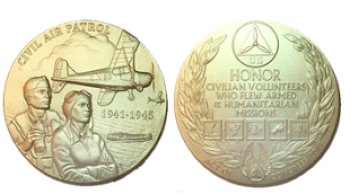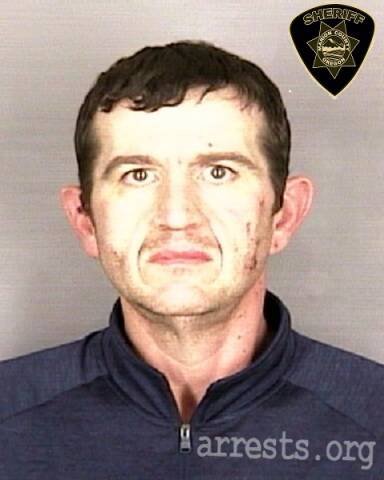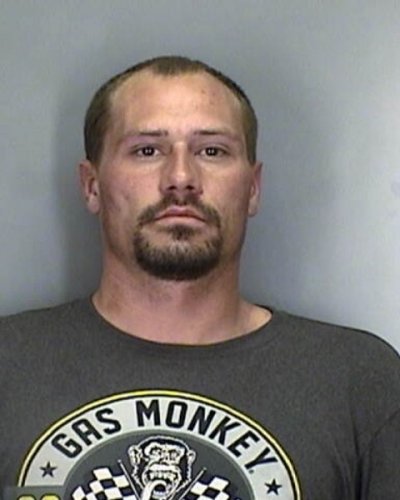Oregon Families to Receive Congressional Gold Medal
The Congressional Gold Medal was granted to Civil Air Patrol volunteers from World War II on May 10, 2014.

(PORTLAND, Ore. ) — U.S. Senator Jeff Merkley will present Congressional Gold Medals at a special ceremony in Portland on Monday, Feb. 16, to four Oregon families for the World War II service of their loved one.
Also attending will be Hellenmerie "Rie" Walker, 89, who will personally receive the award that she couldn't travel to Washington, D.C., to receive. Ms. Walker's daughter attended the national ceremony on her behalf in December. Walker is the only one of six Oregon members of Civil Air Patrol who is still alive. She served as a cadet from 1942 to 1944 as a teenager. Later in life she rejoined Civil Air Patrol, and earned the grade of Lieutenant Colonel.
Honorees include:
Obed "Pancho" Donaldson joined at the age of 34. He became a member on December 1, 1941, the day the Civil Air Patrol became a reality, just six days before the attack on Pearl Harbor. During his wartime service Donaldson flew as a pilot with the Southern Liaison Patrol on the Texas-Mexico border. He later served as the Oregon Wing Commander reaching the grade of Colonel. He is survived by his wife, Iris, and 3 sons: Richard, Dale and Don. All four of them plan to be at the Portland ceremony.
George Felt is one of six members of the Oregon Wing of Civil Air Patrol who served during World War II. He was born January 4, 1914, in Ogalalla, Nebraska, and started his career in aviation at the Roseburg Airport where he worked on airplanes. He learned to fly at the age of 15. His granddaughter, Lori Adams of Roseburg, plans to attend the Portland ceremony.
?Harry M. Hewitt lost his life while flying a Southern Liaison Coastal Patrol Mission. He was 28 years old when he made the supreme sacrifice on January 17, 1944. He had been a senior member of CAP for one year. Hewitt was born in 1916 in Colorado, but raised in Eugene. Prior to joining CAP he was an enlisted man in the U.S. Army Air Corps. ??On December 10, 2014, at the national award ceremony in Washington, D.C., Hewitt's son Harry Hewitt Dichter of Oregon received the bronze medal for his father and therefore doesn't plan to attend the Portland ceremony.
Ms. Dean Jones - Although most of the Civil Air Patrol flying was done by men during World War II, about 20 percent of the members were women. They served in many important ways. One of those ladies was Dean Jones, a resident of Eastern Oregon. Her son Keith Jones and family operates the Devil's Canyon Ranch & Devil's Canyon Guest Ranch in the Bridgeport/Clarksville area of Eastern Oregon. Her family is not able to attend the Portland ceremony. Standing in for them will be close family friend State Rep. Greg Barreto of District 58.
Dean Rankin, born in Vaughn, Oregon, in 1921, and served first in Civil Air Patrol, and then the U.S. Army Air Corps. His major skill was as an aircraft maintenance technician. He also had a private pilot's license. He joined CAP in Benito, Texas, where CAP flew anti-submarine and border patrol missions. Rankin passed away in Eugene, Oregon, June 23, 1998 at the age of 76. His daughter, Dena Rankin-Searles, who lives in Roseburg, will attend the Portland ceremony.
Hellenmerie "Rie" (Fiatte) Walker will travel from Lewiston, Idaho, to attend the ceremony. She was a cadet during World War II standing guard duty over B25s at the airport at The Dalles, walking neighborhoods to remind Portland residents about the "blackout" order of showing no lights after dark. She also joined CAP later as an adult and was a medical officer, administrative officer and chaperone among many other activities. She worked on many aircraft searches and search exercises. As an adult, she led trips of cadets to British Columbia, Canada, for airshows where they would help direct aircraft traffic and other duties.
The Congressional Gold Medal was granted to Civil Air Patrol volunteers from World War II on May 10, 2014. It is a single Gold Medal that was given to the Smithsonian Institution to create a traveling display. Each recipient or his or her family receives a bronze replica.
The bill passed by Congress details the accomplishments of CAP pilots and volunteers:
"The unpaid volunteer members of the Civil Air Patrol during World War II provided extraordinary humanitarian, combat, and national services during a critical time of need for the Nation.
"During the war, CAP members used their own aircraft to perform a myriad of essential tasks for the military and the Nation within the United States, including attacks on enemy submarines off the Atlantic and Gulf of Mexico coasts of the United States."
Germany started a massive submarine offensive off the east coast of the USA against oil tankers and other critical shipping. Neither the Navy nor the Army had enough aircraft, ships or other resources to adequately patrol and protect shipping. Many ships were torpedoed and sunk, often within sight of civilians on shore including 52 tankers sunk between January and March 1942. That caused the Petroleum Industry War Council to urge the War Department to consider using CAP to patrol. They allowed patrols starting in March 1942. There were three bases in Delaware, Florida and new Jersey. Aircrews from CAP, ranging in age from 18 to over 80, immediately started to spot enemy submarines as well as survivors, bodies and wreckage.
CAP aircrews flew up to 100 miles out over the ocean and the Caribbean Sea. Often they had one radio and a compass between a pair of aircraft. The initial purpose was to spot submarines and report their position. It became obvious that the military could not respond in a timely manner, so CAP aircraft were eventually authorized to drop 50- and 100-pound bombs and on some larger aircraft 325-pound depth charges. The arming of CAP aircraft dramatically changed the mission for these civilian aircrews, and resulted in more than 57 attacks on enemy submarines.
All told, CAP lost 26 pilots and other aircrew members during flying missions. There were an additional 7 serious injuries and 90 aircraft were lost. But, in the 18 months of the Coastal Patrol, the aircrews from CAP were credited with 2 submarines possibly damaged or destroyed; 57 submarines attacked; 82 bombs dropped against submarines; 173 radio reports of submarine positions (with a number of credited assists for kills made by military units); 17 floating mines reported; 36 dead bodies reported; 91 vessels in distress reported; and 363 survivors in distress reported.
CAP also used its crews and aircraft to perform 5,684 convoy missions as aerial escorts for Navy ships. There were 86,685 missions flown, with 244,600 total flight hours logged covering more than 24 million miles.
After the Coastal Patrol was assumed by the U.S. Navy, CAP turned its skills and resources to border patrol flights, forest and fire patrols, military courier flights for mail, repair and replacement parts and urgent military deliveries. In emergencies they would transport military personnel. In training of U.S. pilots, CAP aircrews served as tow airplanes for targets that pilot trainees would shoot at.
Many more areas of support are listed in Senate Bill 309.
These awards will be presented at the annual awards banquet of the Columbia Composite Squadron, which meets on Monday nights at the Portland Air National Guard Base. This ceremony will begin at 5:45pm February 16th at the First United Methodist Church, 1838 SW Jefferson St., Portland, OR.
Today Civil Air Patrol has three missions: Emergency Services, Aerospace Education and Cadet Programs. CAP offers opportunities for members to serve communities, participate in leadership development training and acquire new skills that benefit personal and professional growth.
Facts about CAP:
* Contributed $155 million in man-hours in 2012 by serving the disaster relief and emergency service needs of communities, states and the U.S.
* Operates one of the largest fleets of single-engine piston aircraft in the world, with 550 currently in the fleet.
* Flies more than 100,000 hours annually.
* Maintains a fleet of more than 950 emergency service vehicles for training and mission support.
Source: Oregon Civil Air Patrol



